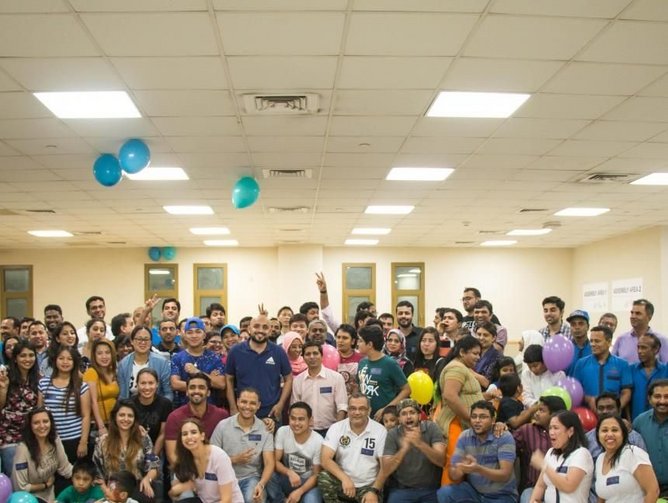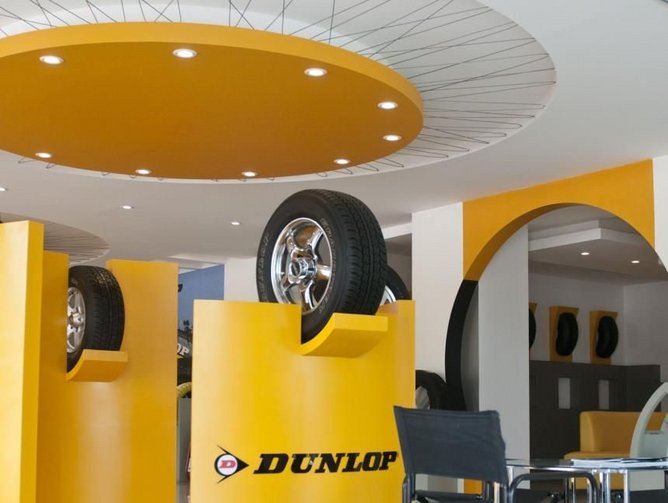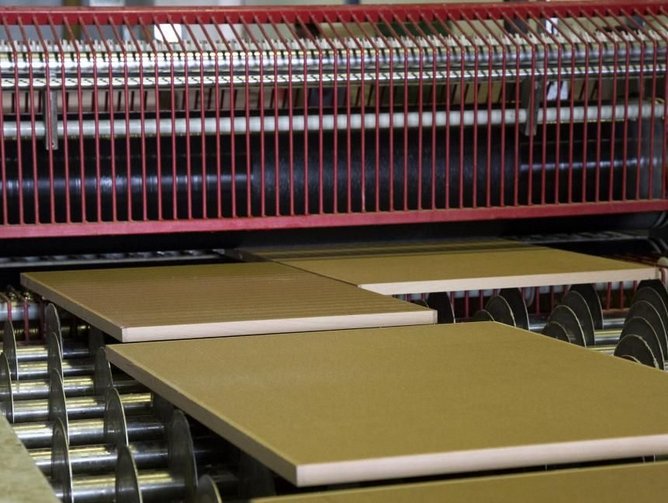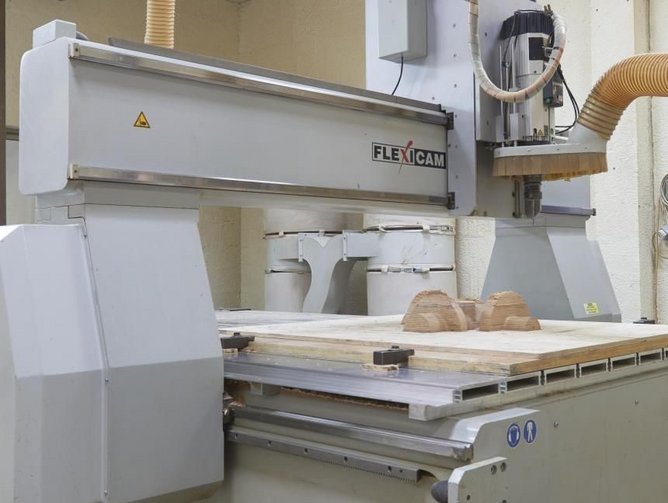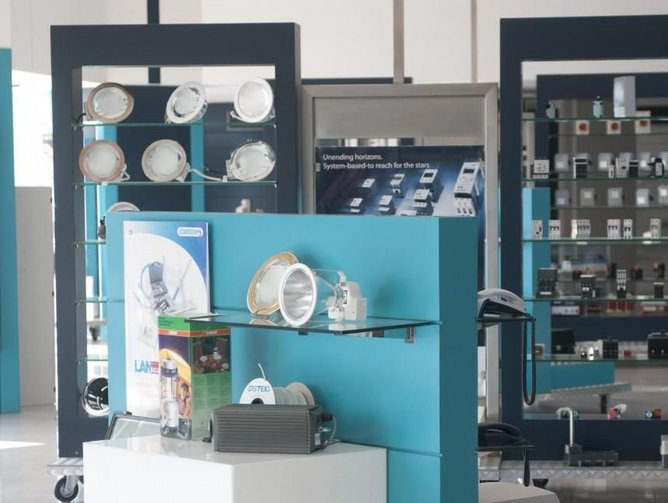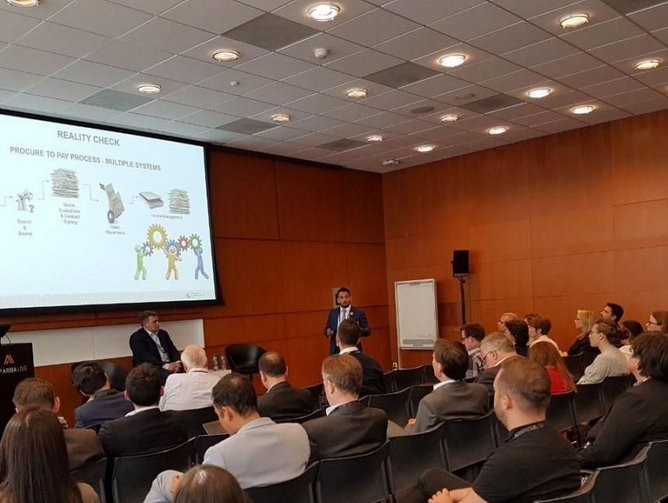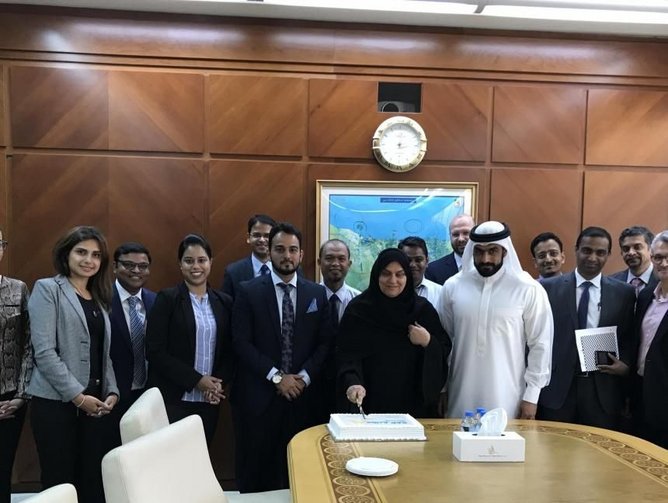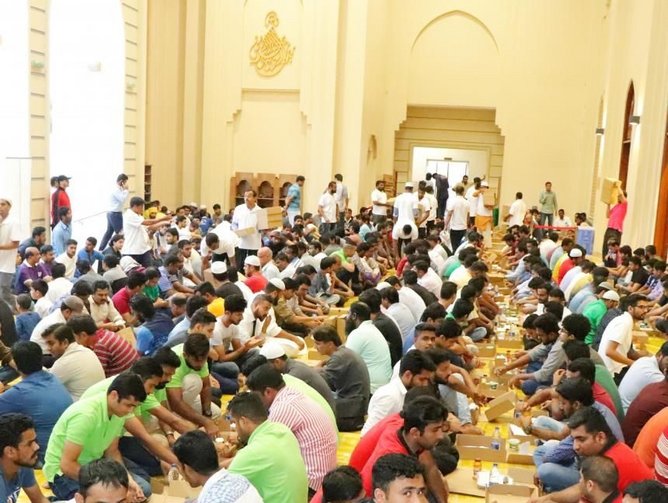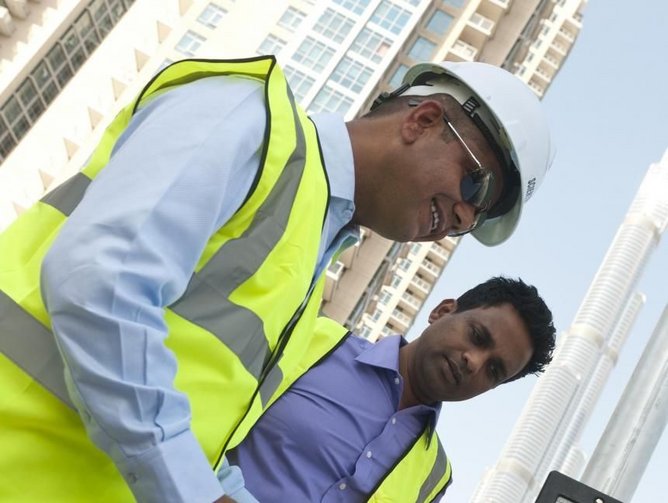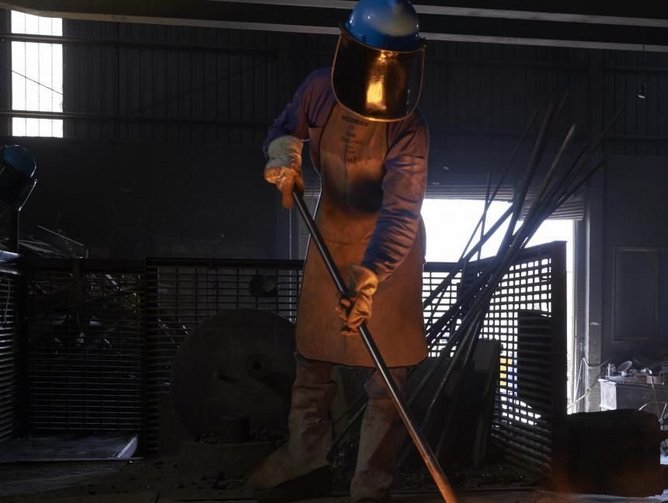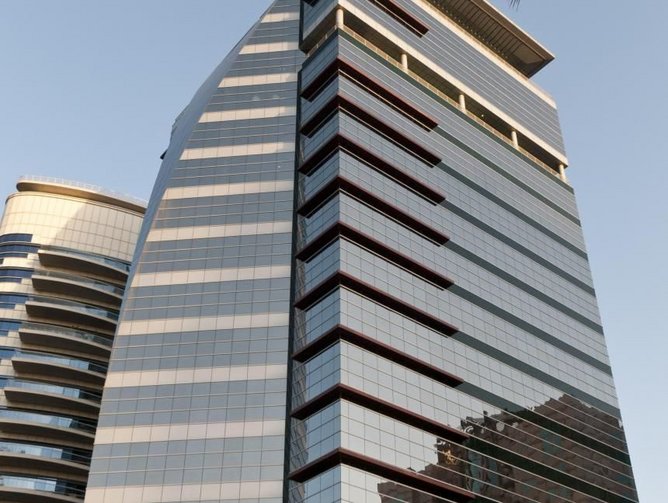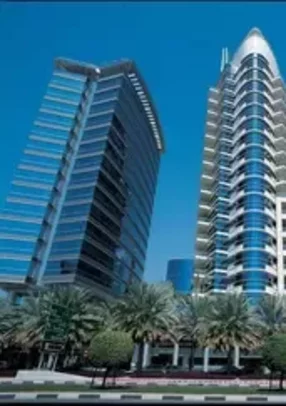ESAG has embraced digitisation, delivering significant savings across the supply chain
Established alongside the evolution of Dubai, the Easa Saleh Al Gurg Group LLC (ESAG) has grown organically to become one of the leading business houses in the UAE. Now commercialised into various necessities, it has tapped into key areas of progression in the Middle East, such as infrastructure and services, manufacturing and retail, housing six joint venture partners across a number of divisions.
Representing 27 companies, the diverse business encompasses a consolidated structure in the management of its finances, legislation, corporate governance and IT operations. While businesses are able to rule independently alongside its robust framework, as well as developing their own business strategies, the business has sought to consolidate a number of areas, such as its purchasing, finances and legislative operations, believing that its true strength lies in numbers.
Using innovative, sustainable and progressive practices, ESAG aims to remain at the forefront of changing market and industry trends, ensuring that its product and service offerings meet the needs of its customers and are aligned with Dubai’s Smart City vision.
To unlock further business growth, ESAG decided to undergo a deep dive into its supply chain functions in order to drive increased value across the business and remain competitive against new players in the market.
A family owned business, Abdulla Al Gurg has sought to build a business in alignment with Dubai’s 2020 vision, with the aim to make ESAG’s operations increasingly efficient, with a focus on finding ways to reduce costs, but drive higher quality across its operations.
“Five years ago, supply chain was not managed systematically at ESAG. Our Chief Financial Officer, Werner Flaig, introduced the concept of supply chain to the firm. When I came on board, the first priority was to understand different businesses and add value into these diversified units which would make us unique,” explains Irfan Kapadia, Group Head of Supply Chain.
With 97 individuals situated across the supply chain, carrying out procurement, logistics, demand planning, inventory planning and warehouse management operations, ESAG’s diverse supply chain structure also encompasses three individuals at Corporate Office undertaking its supply chain planning and governance activities, as well as an operational team under Kapadia’s leadership.
“Companies are increasingly using their supply chain to compete and gain market share,” adds Kapadia. “Supply chain excellence is more widely accepted, and we are no exception to it.”
Strength in consolidation
In order to remain competitive, ESAG has adopted strategic sourcing as part of its cost structure and has formalised the way it seeks to gather information. This is then used to consolidate its requirements, providing economies of scale when negotiating with suppliers.
“We don't just focus on local vendors or those based in one part of the world but try to have multiple sourcing avenues globally. If I have two suppliers, we try to have another two from the farthest regions so it does not affect the supply chain. The same goes for our local suppliers,” explains Kapadia.
“We have streamlined a lot of our purchasing where we have received over 30% savings in many of our companies because of our consolidation. This all adds up into our supply chain savings,” observes Abdulla Al Gurg, Group Chief Executive Officer.
“This has provided a number of advantages,” adds Flaig.
“Automatically, we manage compliance and speed in the supply chain and our procurement activities. We know the shortest logistics time window and can optimise cost. This gives us an advantage for the future to be competitive in markets which are rapidly changing in this region.”
Additionally, with a number of suppliers utilising different systems, ESAG has had to become increasingly agile.
“There are certain parameters which we set for supply chain, which enables us to build our strategy and adopt more towards external parties. It’s been a learning experience for us” says Al Gurg.
The use of data
In the age of digitally savvy and empowered customers, ESAG are known as pioneers in adopting new technologies, exploring opportunities to enhance interactions with its customers across all touch points.
The business became the second company in the region to adopt SAP’s full suite back in 2006 and it was the first in the UAE to migrate on SAP ECC on HANA technology. The company was also amongst the few to implement ReFX (a Real Estate Module of SAP), Open Text and VIM for document filing and invoice management.
Taking a measured and deliberate approach to investing in its transformation journey, the company has assessed numerous factors, such as its existing resources, readiness and how enhancing key operations and processes contribute to its overall business objectives.
“We were one of the early adopters of a Treasury Management System, the first in-house virtual bank in the region, as well as new an ERP system, SAP’s Business Objects and more. We have also invested in a new customer relationship management (CRM) system and a point of sales (POS) system,” notes Al Gurg.
“We brought SAP Ariba on board last year and have deployed its upstream module to streamline our supplier registration, sourcing and contracts to automate our Procure-to-Pay processes,” adds Kapadia.
“We are looking into data analytics in demand planning and digitise our in-bound and last mile logistics. We work to make sure that whatever technologies are available, we assess them and see how it will benefit the business, grow our top line, save cost and improve efficiency.
Working to capture all moments through the use of technology, such as track and trace, ESAG has appointed a number of individuals with significant expertise in utilising data and analytics. Becoming more scientific in its approach, the business will gain a greater understanding of the information received, drawing on lessons from advanced markets, and combining this with its understanding of cultural nuances that contribute to the customer experience within the UAE.
“To ready ourselves for the future, we are investing in technology for the benefit of our diverse portfolio of businesses, including process automation, mobility, customer service, e-commerce and securing our data infrastructure, as well as our procurement and logistics processes,” Al Gurg adds.
Change management
Despite its ongoing transformation, it has been imperative for ESAG to undergo an essential change management process. By fully digitising its procure-to-pay processes, overhauling its supplier relationships and promoting collaboration across its sourcing, invoice submission and payments, Flaig explains that it has presented the biggest challenge.
“We can invest millions into software and give a complete landscape of technology to our staff and to our businesses, whether it’s a fully automated treasury management or ERP system or even the adoption of SAP Ariba software. Nevertheless, if people don't get comfortable with the technological advantages we have, we can’t bring our horsepower to the ground.
“Years ago, it was clear that companies didn’t want to invest that much in training their employees. This is the biggest challenge in the entire region, but the more awareness we create in our team, the competitive advantage we will have in the future.
“We have to invest in our people in order to enable them to change as fast as the markets are continually changing.”
With this in mind, the business has placed significant investment in developing a robust team who have a deep understanding of the company and its long-term goals.
Investing in the development of its own training centre, ESAG delivers over 780 hours of training to its 3,000 employees in a number of areas, from supply chain, governance, and legislation, to soft skills, such as managing conflict. The company also delivers a number of women’s empowerment initiatives.
“We also cover SAP software utilisation and VAT training, which was introduced this year. I also manage supply chain-related training, where every quarter we gather our supply chain community and teach them the principles of procurement, what's happening in the supply chain industry, how the logistic system works, our process flows and how to negotiate, and of course, our internal policies and processes” observes Kapadia.
“We have heavily invested into supply chain digitisation, so we have ongoing training which is always happening, making sure procurement executives know how to create purchase exercitations, how to create sourcing requests and how to collect it with suppliers. All of this happens at the training centre.”
Long-standing reputation
A key figure in the UAE, ESAG is keen to lead by example and places particular emphasis on giving back to local communities in a number of health, education and labour initiatives.
Regularly donating clothes for families who are supported by the Red Crescent Authority in UAE, the business also supports local hospitals through blood donation.
“For our employees, we also provided complimentary health tests to commemorate International Diabetes Day, offere breast cancer awareness programmes as well as wellness programmes, such as free yoga classes,” explains Flaig.
“From a supply chain perspective, we are also heavily involved. For example, we recently did a healthcare check-up for all of our 800-plus labour employees, so the supply chain team brought our water supplier on board, who came and distributed free samples of water and juices for the labour staff,” adds Kapadia.
“Similarly, we have collaborated with different partners in the market, where they offer different discounts for our employees. Any external activities that we do, we drive partnerships with our suppliers. We give them a say in the process. It’s not an individual task, but one where the supply chain comes together.”
With a long-standing reputation, ESAG remains proud to have a number of successful business relationships, many which have spanned over 50 years, such as British American Tobacco, Siemens and Dunlop, amongst others.
Its values begin with its staff and are extended to its vendors and clients. Developing an organisational structure, combined with technology, the business is now able to successfully discuss, negotiate, and work with both international and local business partners effectively, leading to continual business growth.
“This holistic approach of being ahead of the curve in the market puts us above the competition, which will make us survive as a business and will continue to enable us to drive a long-term, sustainable, strong performance,” says Flaig.
“We remain unwavering in our commitment to conduct all of our business activities with integrity and excellence, and ensuring the trust of our shareholders, customers, employees and business partners,” concludes Kapadia.
“We will continue to leverage our expertise to achieve sustainable growth in our identified areas of strength and remain agile and responsive to both the market and our customers’ requirements, exploring opportunities for growth into new sectors through a combination of deepening relations with existing partners and further diversifying our current portfolio of businesses to tap into new customer segments,” concludes Kapadia
“Carrying forward the legacy of our founder, our preparedness and foresight has created processes and policies that guarantee the longevity of the business. A testament to that is being a successful family run Emirati company with three generations working side by side.”
